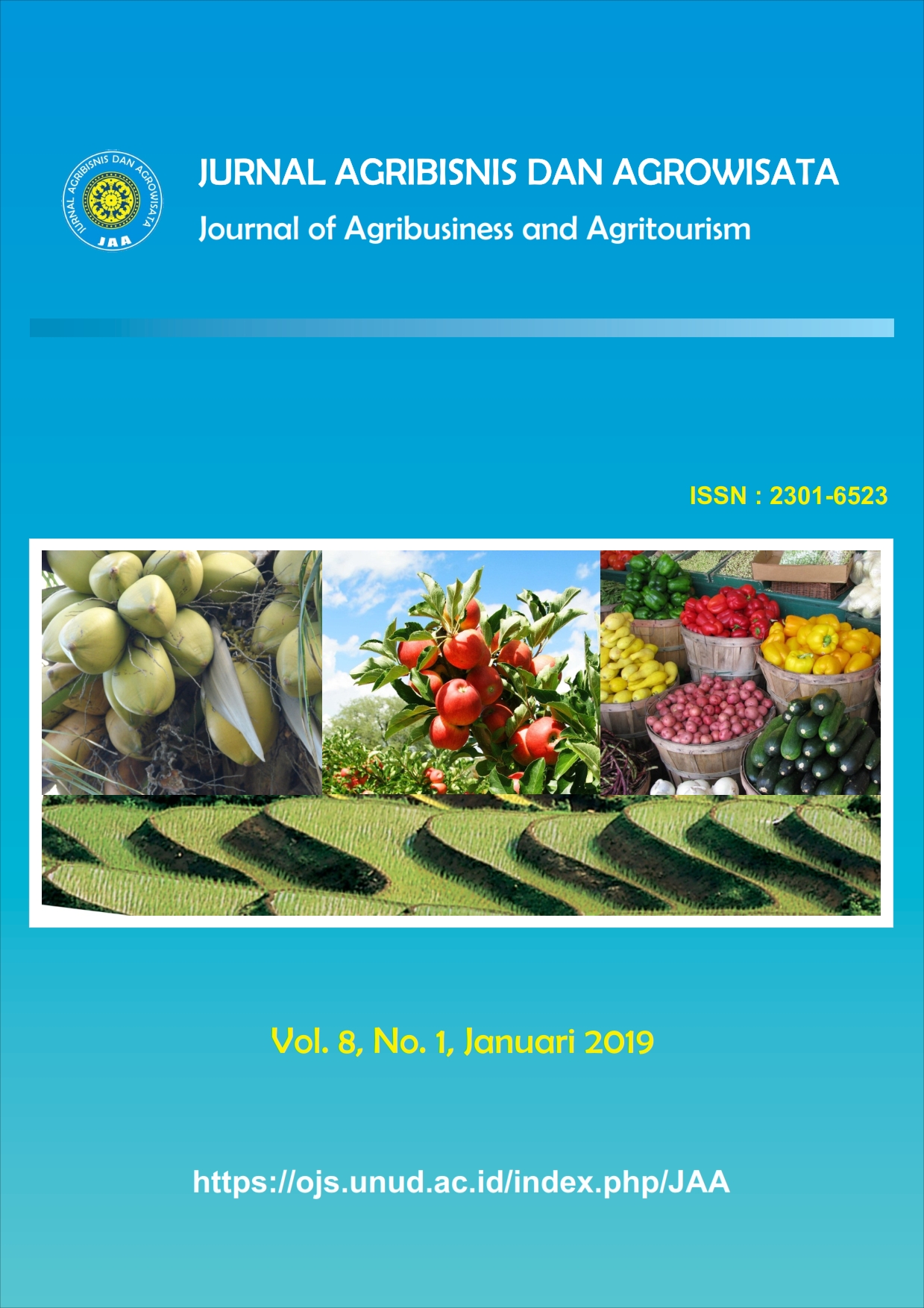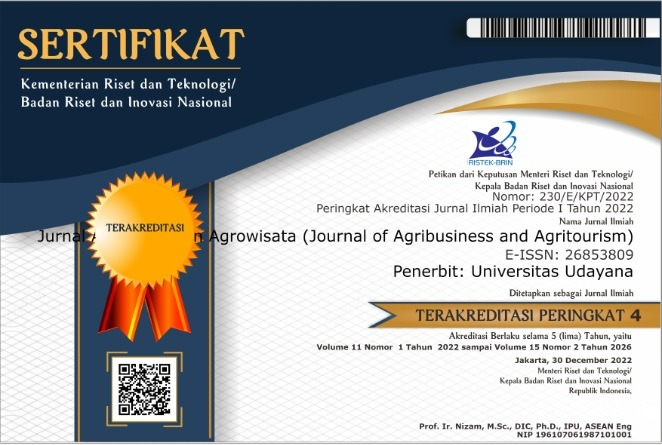Peran Serta Subak Dalam Program Penangkaran Benih Padi PT. Pertani (Persero) (Kasus Di Subak Bengkel, Desa Bengkel, Kecamatan Kediri, Kabupaten Tabanan)
Abstract
Participation Of Irrigation Organization Of Subak In The Program Of Rice Seed Breeding Of Pt. Pertani (Persero) (A Case In The Subak Bengkel, Bengkel Village, Kediri Sub-District Of Tabanan Regency)
PT. Pertani is a state-owned company engaged in seeding. In SubakBengkel, the participating parties in the breeding program were only TempekPagedangan. The purpose of this research is to investigate the role of farmers, the benefits and constraints in seed breeding program. The approach used is qualitative descriptive method. The results of the research show that participation in social aspect covers the activity of farmer giving idea, opinion and thought. Participation in terms of economic aspects include payment of contributions and voluntary contributions. Participation in terms of technical aspects include farmer breeders want to adopt rice seeding techniques. The benefits of breeding programs from the social aspect include good relationships among fellow breeders, good relationships with partners. Benefits in terms of economic aspects include higher purchased of grain prices. Benefits in terms of technical aspects of obtaining rice cultivation techniques. Constraints in the breeding program from the social aspect include: strict requirements of PT. Pertani, it is difficult to change perceptions and there is a threat from rice milling. Constraints in terms of economic aspects include a lack of money and land capital. Obstacles in terms of technical aspects include lazy farmers and hard to get the basic seed. Based on the results of the research, it can be concluded that the farmers were greatly participating in the SubakBengkel in breeding program. Judging from the problem, farmers are expected to learn the cultivation of rice seed, PT. Pertani should disseminate the program intensively, the community group of TempekPagedangan should immediately solve the problem by consensus.







